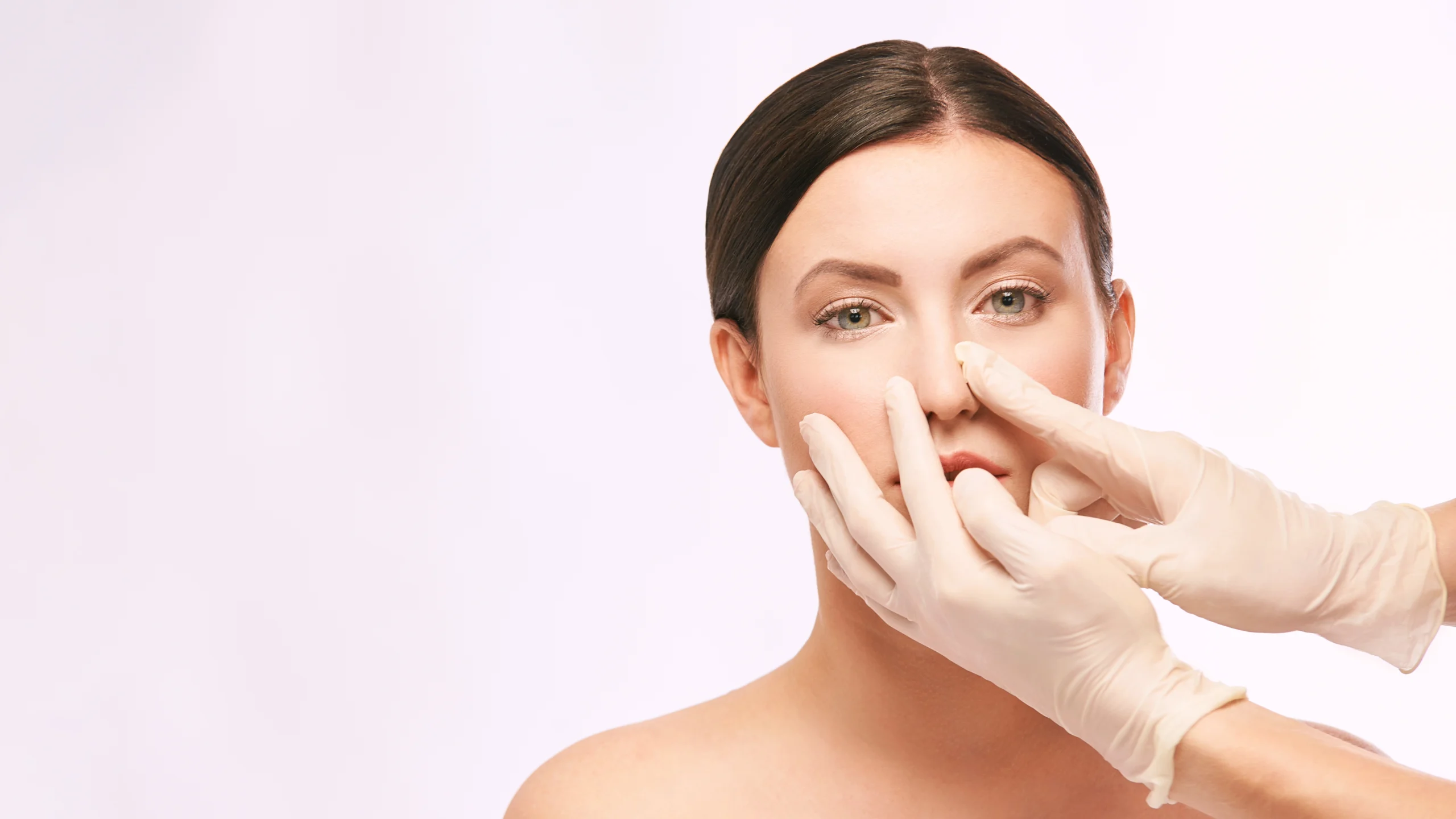Key Takeaways
- Staying hydrated and using a humidifier can help keep sinuses moist and reduce snoring.
- Steam inhalation with essential oils like eucalyptus and peppermint can clear nasal passages quickly.
- Adjusting your sleep position to elevate your head can alleviate sinus pressure and snoring.
- Incorporating anti-inflammatory foods into your diet can have a positive impact on sinus health and snoring.
- Understanding when to seek professional help is crucial for individuals with chronic sinusitis who also snore.
Why Fast Sinus Treatments Matter for Snoring
Snoring isn’t just a nuisance for your bed partner; it can also be a sign of poor sinus health. When your sinuses are blocked, your breathing is obstructed, leading to that all-too-familiar nighttime soundtrack. But why is quick relief so important? Because a good night’s sleep is crucial for your health, and clearing those sinuses can help you achieve it.
The Connection Between Sinuses and Snoring
Let’s break it down: Your sinuses are air-filled spaces in your skull. When they’re inflamed due to allergies, colds, or other irritants, they swell and produce excess mucus. This can block your nasal passages, forcing you to breathe through your mouth, which increases the likelihood of snoring. Fast sinus treatments can therefore be a game-changer for snorers.
Most importantly, the goal is to keep those nasal pathways open throughout the night. This not only helps with snoring but also ensures that your body gets the oxygen it needs to function properly while you’re asleep.
The Impact of Sinus Health on Sleep Quality
Natural Remedies to Alleviate Sinus Pressure
Now, let’s talk about natural remedies. These are simple and effective ways to improve your sinus health and reduce snoring, often using items you already have at home.
Hydration: Water Intake and Humidifiers
First things first: hydration. Drinking plenty of fluids thins the mucus in your sinuses, making it easier for them to drain. This is a fast and straightforward way to relieve sinus pressure. But don’t stop there. Using a humidifier in your bedroom adds moisture to the air, which can prevent your sinuses from drying out and becoming irritated.
Example: Imagine you’re in a dry, arid desert with a stuffy nose. It’s uncomfortable, right? Now picture yourself in a steamy bathroom after a hot shower. That moisture in the air can help loosen the mucus, and it’s the same principle with a humidifier.
Here’s what you can do:- Keep a glass of water by your bed and sip before you sleep and as soon as you wake up.
- Run a humidifier in your bedroom at night to maintain optimal humidity levels.
Steam Inhalation: Clearing the Passageways
Steam inhalation is a time-honored method for quickly clearing your nasal passages. You can do this by taking a hot shower or by pouring hot water into a bowl and breathing in the steam. To enhance the effect, add a few drops of eucalyptus or peppermint oil, both of which are known for their decongestant properties.
Example: Picture the last time you had a cold and how a warm cup of tea seemed to make breathing easier. That’s the power of steam at work, helping to open up your sinuses and reduce congestion. Remember to:- Be cautious with hot water to avoid burns.
- Close your eyes to prevent irritation from the essential oils.
Elevating Your Head: Pillows and Wedges
Dietary Adjustments for Sinus and Snoring Relief
Your diet plays a big role in your sinus health. Inflammatory foods can worsen sinus congestion, while others can actually help reduce it. Making some strategic dietary changes can provide you with fast relief from sinus pressure and, as a result, reduce snoring. For more information on managing this condition, read about snoring solutions from Harvard Health.
Anti-Inflammatory Foods and Snoring
Anti-inflammatory foods are your friends when it comes to sinuses. These include:
Fatty fish like salmon, which is rich in omega-3 fatty acids
Leafy greens that are packed with antioxidants
Turmeric and ginger, spices known for their anti-inflammatory properties
For example, swapping out a steak for a salmon fillet can not only provide a tasty dinner but also contribute to reducing the inflammation in your sinuses.
Therefore, by incorporating these foods into your diet, you’re not just eating well – you’re also taking proactive steps to manage your sinus health and snoring.
But it’s not just about what you add to your diet; it’s also about what you should avoid, especially before bedtime.
Foods to Avoid Before Bedtime
Eating the wrong foods before bed can aggravate your sinuses and lead to a night of snoring. To keep your airways clear:
- Avoid dairy products as they can thicken mucus
- Stay away from spicy foods, which can sometimes lead to inflammation
- Reduce alcohol intake, as it relaxes the throat muscles and can exacerbate snoring
Lifestyle Modifications for Sustainable Relief
Long-term solutions to snoring and sinus issues often involve lifestyle changes. For a deeper understanding of these changes, consider exploring snoring solutions recommended by specialists.
Regular Exercise and Nasal Health
Regular exercise does wonders for your body, including your nasal passages. Physical activity helps reduce inflammation and can improve your breathing. Even a brisk walk can make a difference. Learn more about snoring solutions and how they can complement your exercise routine.
Weight Management and Its Role in Reducing Snoring
Carrying extra weight, especially around the neck, can put pressure on your airways, leading to snoring. Losing weight can have a significant impact on reducing snoring because it eases that pressure, allowing you to breathe more freely.
- Start with light, consistent exercise and gradually increase intensity.
- Consider consulting a nutritionist for a personalized weight loss plan.
- Track your progress and celebrate small victories to stay motivated.
When to Seek Professional Help
If your snoring persists despite trying these remedies, it may be time to seek professional help. Chronic sinusitis, which is a long-term sinus condition, can contribute to snoring and requires medical attention. Remember, persistent snoring can also be a sign of sleep apnea, a condition that should not be taken lightly.
Understanding the Signs of Chronic Sinusitis
Chronic sinusitis is characterized by symptoms such as nasal congestion, facial pain, and a reduced sense of smell that last for more than 12 weeks. If you experience these symptoms, it’s important to consult with a healthcare professional who can provide you with a proper diagnosis and treatment plan.
Exploring Medical Interventions: Allergists and ENT Specialists
Contact Texas Sinus & Snoring Today!
If sinus congestion or snoring is disrupting your sleep, it may be time to seek professional help. At Texas Sinus & Snoring, our team provides comprehensive care for conditions ranging from simple sinus blockages to more complex issues, such as nasal polyps. With advanced diagnostic tools and personalized treatment plans, we focus on restoring clear breathing and better sleep.
For individuals who may require more specialized care, our providers are also trained in head and neck surgery, ensuring that even challenging sinus or airway concerns can be addressed with precision and professionalism. Don’t let sinus problems or snoring continue to impact your health and daily life. Schedule a consultation today and take the first step toward lasting relief.
Frequently Asked Questions
How quickly can I expect relief from conservative treatments?
Many natural remedies can provide relief within a few days. For instance, staying hydrated and using a humidifier can offer immediate comfort, while dietary changes may take a bit longer to show results. Remember, consistency is key to seeing improvements.
Can sinus treatments completely eliminate snoring?
Are there any side effects to using essential oils while inhaling steam for sinus relief?
Essential oils are generally safe when used correctly. However, they can cause irritation if not diluted properly or if used excessively. It’s important to follow the recommended guidelines for use and to conduct a patch test if you have sensitive skin.
Is it necessary to sleep on my back if I snore?
Actually, sleeping on your back can worsen snoring for many people. It’s often recommended to sleep on your side to help keep the airways open. Special pillows and body positioning can help maintain a side-sleeping position throughout the night.
For example, our patients who have been snoring for years find that switching from back to side sleeping, along with using a nasal spray, drastically reduces their snoring. It’s all about finding the right combination of treatments that work for you.
What should I do if my snoring prevents my partner from getting enough sleep?
Firstly, acknowledge the issue and work together to find a solution. You may want to try the remedies discussed in this article, such as using a humidifier, adjusting your sleep position, and making dietary adjustments. If these don’t help, consider seeing a professional for further advice. Remember, snoring is a common issue, and seeking help can improve sleep quality for both you and your partner.
Can nasal dilators help prevent nasal congestion and reduce mouth breathing and snoring?
Yes, nasal dilators can be very effective for many individuals. Internal nasal dilators are placed inside the nostrils to expand the airway physically. In contrast, external nasal dilators are placed on the outside of the nose to gently expand the nasal passages. Both options can help reduce mouth breathing and ease sinus pain, making them a practical option for treating snoring. The right choice often depends on comfort and personal preference, but either type can provide noticeable improvements in airflow during sleep.
What is oral appliance therapy, and can it help reduce snoring?
Oral appliance therapy involves using a custom-fitted device, similar to a mouthguard, that repositions the jaw or tongue to maintain an open airway during sleep. These appliances can be highly effective for reducing snoring, especially when snoring is caused by the tongue or soft tissues collapsing toward the back of the throat. Many patients find them to be a comfortable, non-invasive alternative to more intensive treatments.
How can continuous positive airway pressure (CPAP) machines help alleviate snoring?
CPAP machines deliver a steady stream of pressurized air through a mask, which prevents the airway from collapsing during sleep. They are most commonly prescribed for individuals with obstructive sleep apnea, a condition where breathing repeatedly stops and starts during the night. By keeping the airway open, CPAP therapy not only reduces snoring but also helps you get more sleep, leading to improved energy and overall health.
Why is a surgical correction of a deviated septum often necessary to reduce snoring?
A deviated septum can significantly block airflow, forcing you to breathe through your mouth and contributing to loud snoring. Over time, this can lead to interrupted sleep and even sleep deprivation, which can impact your daily functioning and long-term health. Surgical correction, often through a procedure called septoplasty, straightens the nasal septum to improve breathing and reduce or eliminate snoring caused by structural blockage.
What other lifestyle changes, besides losing weight, avoiding alcohol, taking hot showers, and sleeping with my head elevated, can you recommend?
In addition to those measures, focusing on nasal hygiene can make a big difference. Using nasal saline sprays before bedtime can help keep the nasal passages moist and reduce nasal congestion. A neti pot filled with sterile saline solution can also help flush out irritants and mucus, promoting clearer breathing. These simple daily practices can complement other remedies and provide long-term support for snoring relief.
Conclusion
When it comes to improving sinus health and reducing snoring, it’s important to remember that snoring affects not only your own rest but also your partner’s well-being. Beyond the noise, it can contribute to dry mouth, a sore throat, and other symptoms associated with sleep disorders. Chronic congestion, a lingering sinus infection, or issues with the soft palate may be responsible for partially obstructing airflow and ultimately causing snoring. Over time, these problems can lead to snoring loudly, struggling with poor sleep, and even experiencing disruptions in the central nervous system.
Fortunately, there are many ways to find relief. Simple options, such as nasal strips, a saline rinse, or adjustments to your sleep habits, can help open the airways and loosen thick mucus. Staying hydrated, treating post-nasal drip, and avoiding drinking alcohol close to bedtime can also support more consistent breathing. In cases where infections are present, treatments such as oral antibiotics may be necessary, while long-term sinus care can help strengthen your immune system and reduce flare-ups.
By combining lifestyle adjustments with practical remedies, you can achieve better sleep, reduce the strain of nightly congestion, and improve your overall well-being. Addressing these issues now can prevent complications later and give you the restful nights you’ve been missing.




